For the most part, cows enjoy eating grass, grain, hay, corn and other forage. Occasionally, to the surprise of their owners, cows will chew on wood and even eat the bark off trees. This leaves many cattle owners scratching their heads and wondering what in the world is happening!
Cows will sometimes chew on wood and eat the bark off trees for a variety of reasons. It can be the result of a nutritional deficiency that causes the sudden change but other times it is simple boredom. The act is not always harmful but there are ways to correct and even prevent the issue.
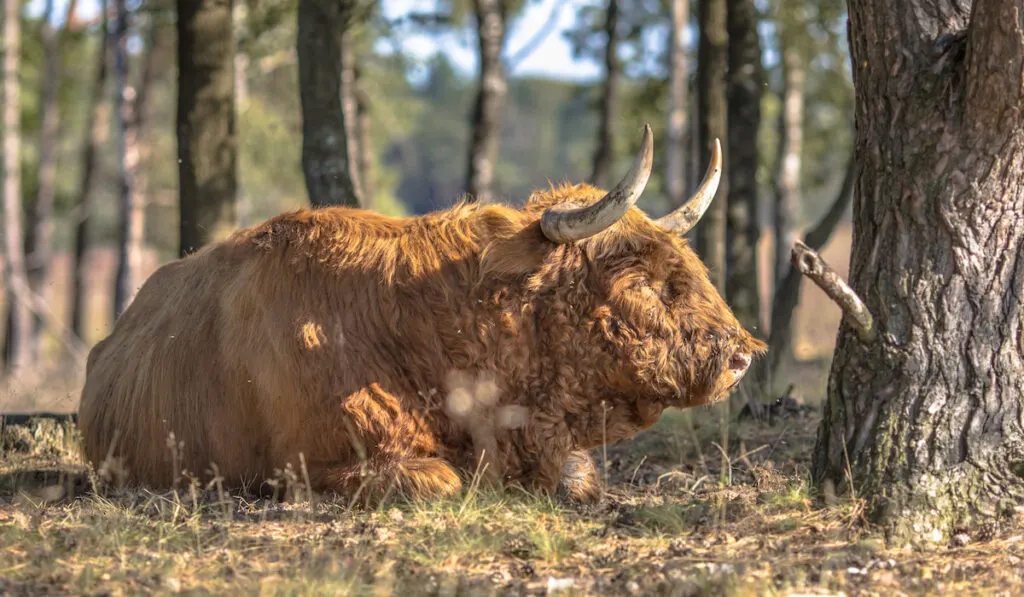
Cows are grazers by nature and for the most part, wood and bark is not on their typical menu. Sometimes, cows can wreak havoc on your farm that can cost you time and money in repairs. There are several things you can do to help stop your cows from chewing or eating wood and bark.
Table of Contents
Why Do Cows Chew Wood or Eat Bark off Trees?
Farmers sometimes discover that their cows are chewing fence posts or barn wood. They may even catch them eating the bark off trees. There a few main reasons why cows begin chewing on wood around your farm or eating tree bark.
1. Nutritional Deficiency
Cows need several vital minerals to keep their bodies functioning properly. Just like humans, cows will crave certain foods or substances when they are running low on important nutrients.
Phosphorous and sodium deficiencies will both cause cows to crave wood. Cows will chew on or even eat wood on your property as well as tree bark to try and get both nutrients. (source)
2. Boredom
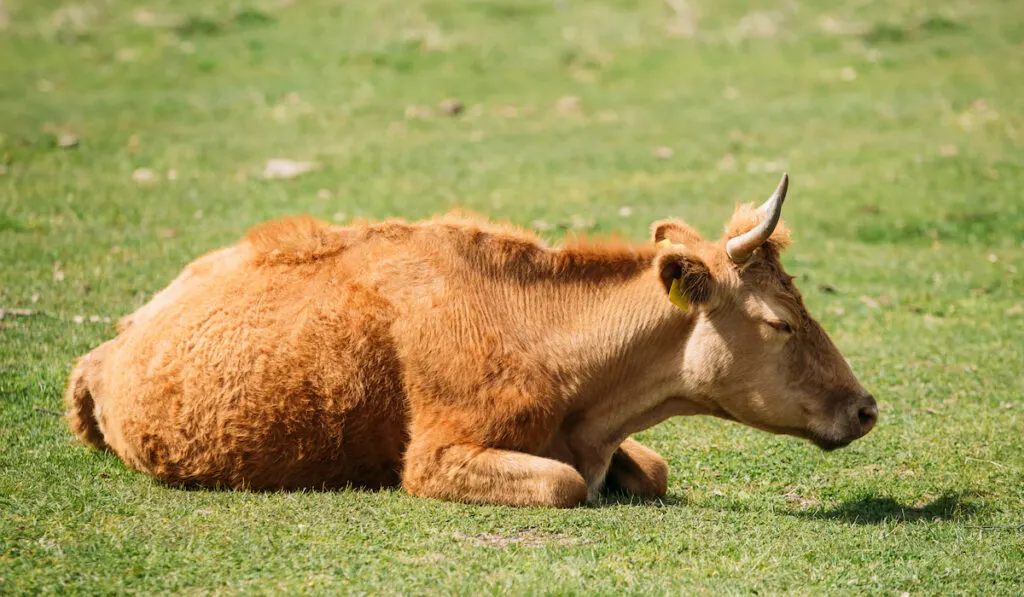
You may not believe it, but cows can get bored! Cows can become bored due to confinement in small areas and not having much area to roam on. One of the most noticeable indications of boredom is chewing on wood.
3. Loneliness
Cows can become lonely from a lack of companionship. Cows are by nature herd animals which means they are happiest when they are with other cows or livestock.
If they are lonely, they may act out in certain ways including chewing on wood and eating bark.
Can Wood or Bark Hurt Cows?
Most wood and bark is not harmful to cows, but sometimes it can be dangerous depending on the type of wood. Treated wood as well as painted wood can be dangerous for cows in large quantities.
Some paint and stain can be dangerous to livestock including cows. Wood that is treated with certain chemicals including chromated copper arsenate or CCA can be toxic for cows.
How to Prevent Cows From Eating Wood and Bark
While it may seem impossible, there are a few ways to prevent your cows from eating the wood and bark on your farm.
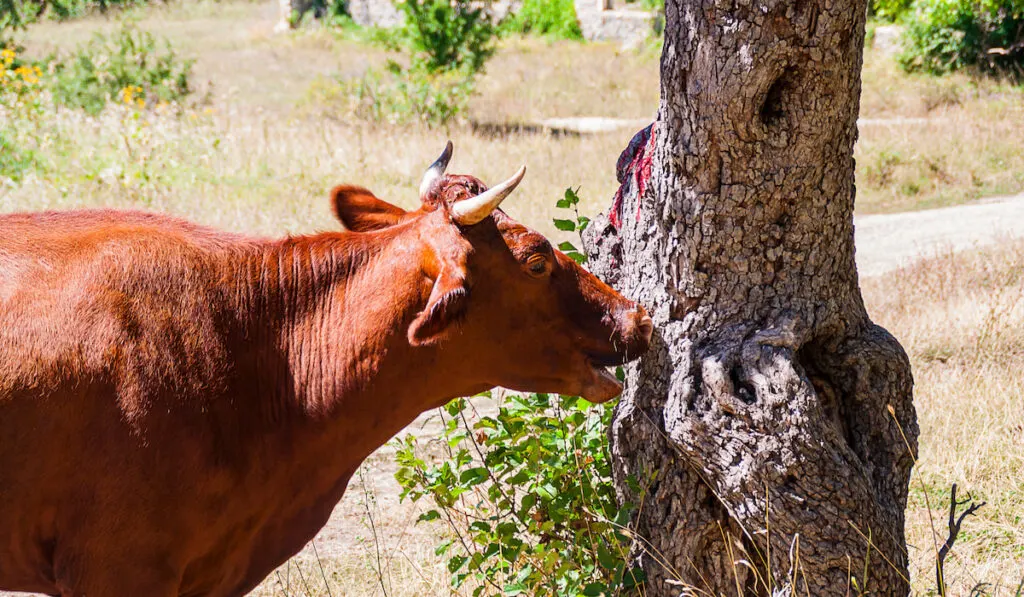
Free Choice Salt
A lack of sodium can often be the cause of wood chewing and eating bark. To prevent or correct a sodium deficiency, you should provide a free choice salt block for your cows.
Cows need to consume salt daily to maintain a safe level of sodium in their bodies. It is one mineral that they will only consume as much as their body needs.
You should put the salt block near their water source as it will make them thirsty. (source)
Free Choice Minerals
Phosphorus deficiencies can also lead to wood cravings in cattle. To combat this, always provide your cows with a free choice mineral.
This will allow them to consume the minerals as needed and will correct any phosphorus deficiency. If that is the cause of their wood and bark obsession, it should be resolved. (source)
Get Them a Companion
Loneliness is another common cause of cows chewing on wood or eating the bark off trees. Cows are herd animals by nature and enjoy the company of other animals.
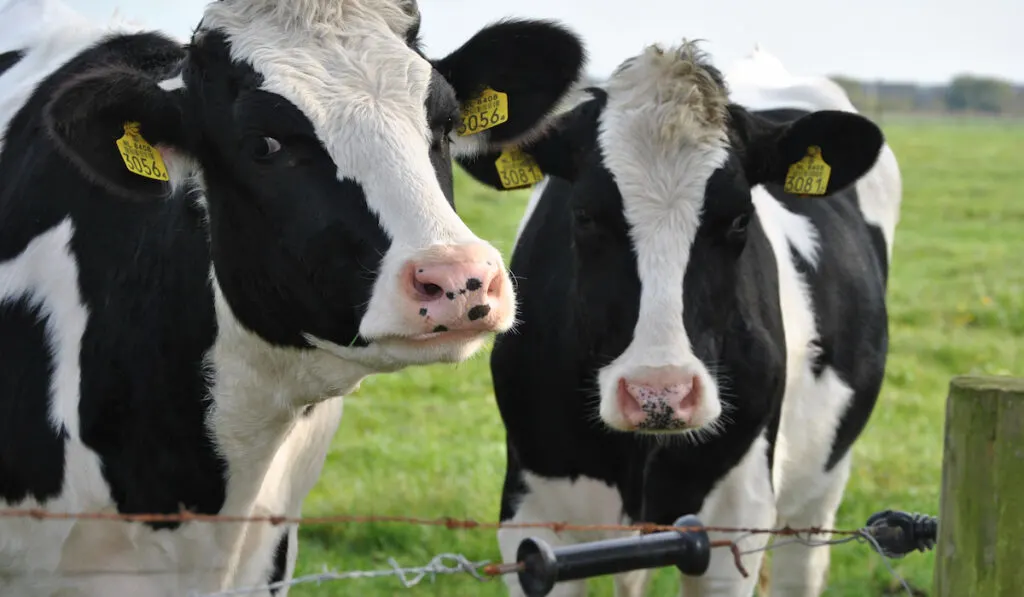
If you have a cow that is by itself, consider getting them one or more companions to keep them company. Often, this can be a simple fix to the problem, and it will make your cow much less anxious.
Build a Larger Enclosure
Cows that are contained in a small area will often become bored and will start to eat wood or bark as a response. Cows naturally enjoy grazing and roaming about their pastures as they eat.
If your wood-chewing cow is in a stall, small pen, or small paddock, consider creating a larger area for them to live in. Sometimes a simple change of scenery could do the trick!
5 Ways to Protect Wood and Trees From Livestock
If the cattle corrections do not solve your problem, you may need to go on the defensive and protect your trees and farm wood from your cows.
1. Fence off the area
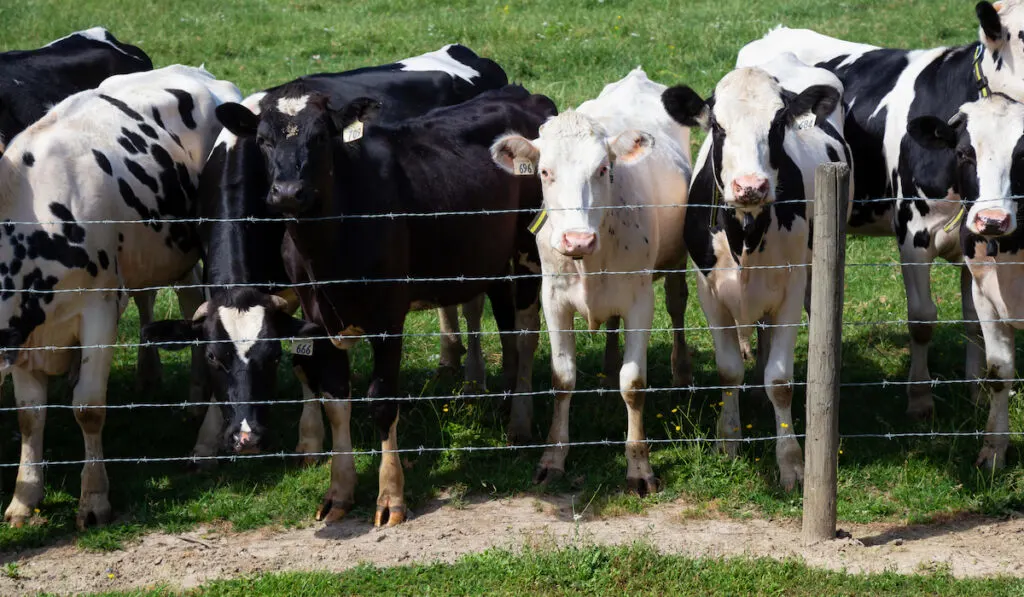
If there are certain trees that your cows tend to eat or chew on, consider fencing off the trees that are being targeted. You can use permanent or temporary fencing; whichever one fits your situation. (source)
2. Use Tree Netting
Some farmers suggest using chicken wire-sized netting around the truck of the tree to stop cows from eating bark.
Larger-sized netting can get caught around hooves. Make sure you keep it loose to allow for tree growth. (source)
3. Use Tires or Tree Guards
For younger trees that you want to preserve, you can stack tires around it or put plastic tree guards over them. Do not forget to remove the tires or tree guard as the tree gets larger or it may stunt the growth. (source)
4. Put a Mineral Lick Near the Tree
If there is a certain tree that is being targeted, try putting a mineral block on the ground somewhere close to the tree.
This will help grab the cow’s attention and steer it away from the tree. It will also help to aid with any mineral deficiencies. (source)
5. Use Manure as a Deterrent
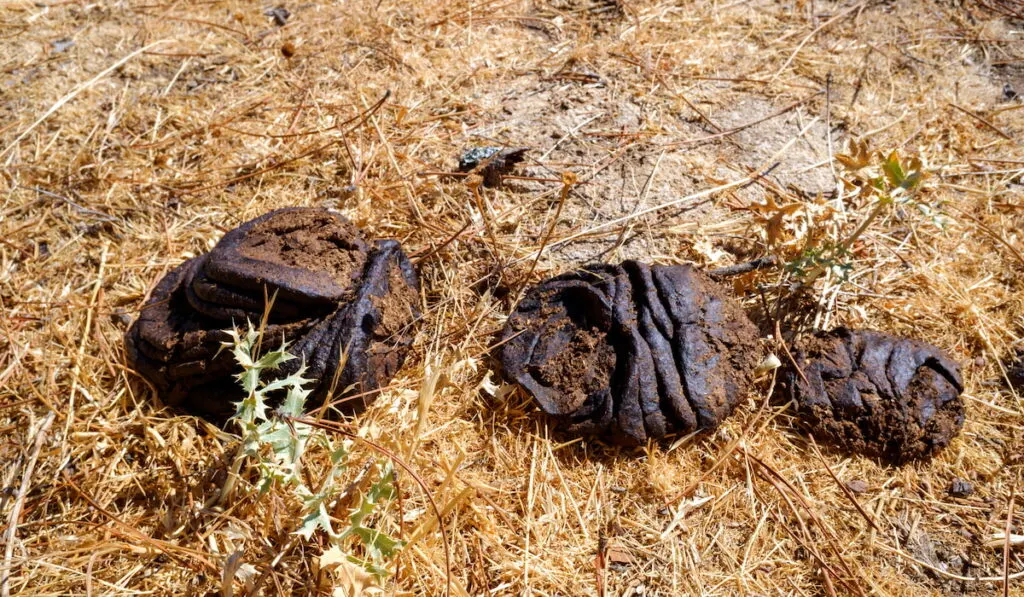
If they have an option, cows prefer to eat away from their own manure. Some farmers have found that placing livestock manure around a tree or wood fencing has successfully stopped their cows from chewing on or messing with that specific tree.
Final Thoughts
Cows enjoy grazing on pastures but sometimes they will stray and begin chewing on wood or eating bark, despite our best efforts. Often, it could be a simple mineral oversight that can be easily fixed with a salt block and free choice minerals. Other times, the culprit is sheer boredom or a lack of companionship, both of which can be easily improved!
Source:
- https://www.drovers.com/article/recognizing-toxicosis-cattle
